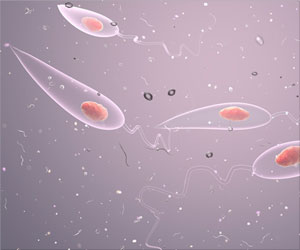- Visceral Leishmaniasis is a neglected tropical disease caused by a protozoan parasite belonging to the Leishmania genus.
- There is no vaccine and current drug treatment for leishmaniasis found to be ineffective due to the high cost, prolonged administration and adverse drug effects.
- Discovery of new proteins which are capable of activating drugs may show promise in treating leishmaniasis.
Around 200,000 to 400,000 new cases of leishmaniasis with approximately 40,000 deaths are recorded annually. Most of the cases were recorded in India, Brazil, Nepal, Ethiopia, South Sudan, Sudan and Bangladesh.
Current drug treatments for Leishmaniasis are found to be ineffective due to prolonged administration, toxic side effects, drug resistance, and expensive cost.
Earlier this year, the research team from Dundee discovered delamanid which is an oral nitro-drug that is used for tuberculosis treatment to be effective in treating leishmaniasis.
Recently they have teamed up with Wellcome Trust Sanger in Cambridge and have discovered a new protein which may develop better and effective nitro drugs for treating leishmaniasis.
Research study be Professor Alan Fairlamb and Dr. Kevin Read has identified two classes of nitro drugs which are found to be curative in animal models of visceral leishmaniasis.
The study findings was published in the journal PLOS Pathogens.
Professor Alan Fairlamb, Wellcome Principal Research Fellow in the School of Life Sciences at Dundee said that,"There has been considerable interest in developing new compounds to target diseases like leishmaniasis, particularly because the existing drugs are very unsatisfactory and increasingly becoming unusable due to resistance in the parasite."
The research study comes to a conclusion that if all drugs are activated by NTR1 it would lead to drug resistance to both fexinidazole and delamanid. The discovery of new protein NTR2 specifically activates delamanid.
Further, this research would help in designing better drugs to increase efficacy, decrease toxicity and reduce drug resistance.
Source-Medindia












